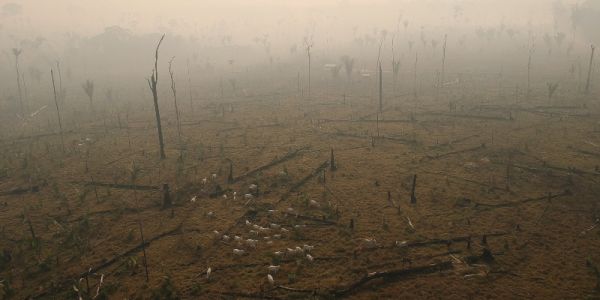
How global sustainable development will affect forests
Global targets to improve the welfare of people across the planet will have mixed impacts on the world’s forests, according to new research.

Global targets to improve the welfare of people across the planet will have mixed impacts on the world’s forests, according to new research.

Researchers have mapped the physical organisation of the brain of a soil-living nematode worm, creating a new model for the architecture of the animal’s brain.

A blanket ban on the trade of wild meat could create risks for nature and for human health, according to a new study.

A bold vision for feeding the population of Leeds would transform the city into a far more food secure, fair and sustainable place to live.

The global food system could drive rapid and widespread biodiversity loss if not changed, new research has found.

The University of Leeds has secured part of a new £147 million research initiative to work with developing nations on the world's biggest challenges.

Two Leeds researchers have been accepted into a prestigious scheme to further their work in climate change and searching for habitable worlds in space.

Rising nitrous oxide emissions are jeopardizing climate goals and the Paris Accord, according to a new international study.

Global energy consumption in 2050 could be reduced to the levels of the 1960s and still provide a decent standard of living for a population three times larger, according to a new study.

Tapping into the myriad uses of plants and fungi could save people and the planet, says new report